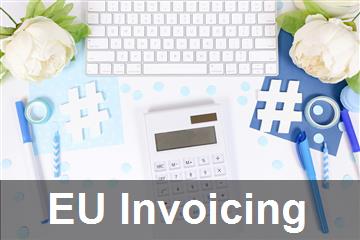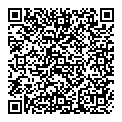
04 ott 2024
The European Union is focusing on digital innovation in invoicing and intra-union trade management through the Vida package, set for approval in late 2024.
Key legislative amendments have been introduced, mandating structured electronic formats for cross-border transactions while allowing flexibility for domestic operations.
The Intrastat model remains crucial for VAT fraud prevention.
Changes also affect the recipient's consent for electronic invoices, with a transition period until 2028.
These developments aim to streamline processes and enhance international business operations.

Introduction to EU E-Invoicing Reforms
The European Union is on the brink of significant changes in its invoicing and trade management systems, driven by the Vida package. This legislative initiative, although postponed for final approval until the second half of 2024, is set to revolutionize the VAT Directive 2006/112/CE by integrating digital innovation into invoicing procedures and intra-union trade management.Legislative Amendments and Their Implications
The European Parliament's legislative resolutions, published in the Official Journal of the European Union on July 24, 2024, have introduced crucial amendments to the VAT rules for the digital era and the distance selling of imported goods. These changes require the European Commission to revise its proposals, while the Council will inform the Parliament of any deviations from the final text.Structured Electronic Format for Cross-Border Transactions
A pivotal aspect of the legislative changes is the introduction of a structured electronic format for cross-border transactions. The European Parliament's legislative resolution C/2024/4246, dated November 22, 2023, mandates the use of this format exclusively for Digital Reporting Requirements (Drr), which involve the transmission of data related to cross-border sales and services. This structured format is not required for domestic operations, which can continue using any electronic format.Flexibility in Domestic E-Invoicing
The amendments allow EU member states to impose electronic invoicing obligations using the EN16931 standard syntax, including the Universal Business Language (Ubl) and Cross Industries Invoice (Cii). However, states can also opt for different formats and prohibit paper invoices from January 1, 2028. In Italy, for instance, the current XML format can still be used for domestic transactions, although European formats must also be supported.The Role of Intrastat in VAT Fraud Prevention
Despite the introduction of the Drr, the Intrastat model remains a vital tool for tax administrations in combating VAT fraud. The legislative changes ensure the continued collection of data through Intrastat, as outlined in amendment 3-ter.Recipient's Consent for Electronic Invoices
Another significant change involves the recipient's consent to receive electronic invoices. Currently, this consent is required, but Italy and Germany have obtained derogations. The amended Article 232 of the VAT Directive 2006/112/CE stipulates that until December 31, 2027, electronic invoicing for intra-community purchases of goods and services taxable in a different member state requires the recipient's agreement. From January 1, 2028, no consent will be needed for intra-union transactions.Conclusion
These legislative changes aim to streamline invoicing processes, enhance digital innovation, and facilitate international business operations within the EU. The focus on structured electronic formats for cross-border transactions and the flexibility for domestic operations reflect a balanced approach to modernizing the EU's invoicing framework.Aspects and Potential Issues
- The transition to structured electronic formats may pose challenges for businesses unfamiliar with the new requirements.
- Ensuring compatibility between different electronic formats across member states could be complex.
- The gradual removal of the recipient's consent requirement may raise concerns about data privacy and security.
Common Pitfalls and Errors
- Misunderstanding the specific requirements for cross-border versus domestic transactions.
- Failing to update systems to support the new structured formats in time.
- Overlooking the continued importance of Intrastat data collection.
Suggestions and Useful Tips
- Businesses should start preparing for the transition by familiarizing themselves with the EN16931 standard syntax.
- Companies should ensure their invoicing systems are adaptable to both current and future requirements.
- Staying informed about legislative updates and seeking professional advice can help navigate these changes effectively.
